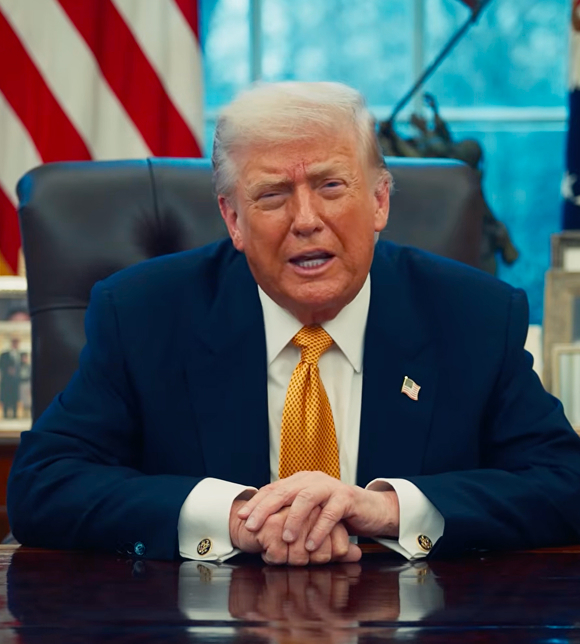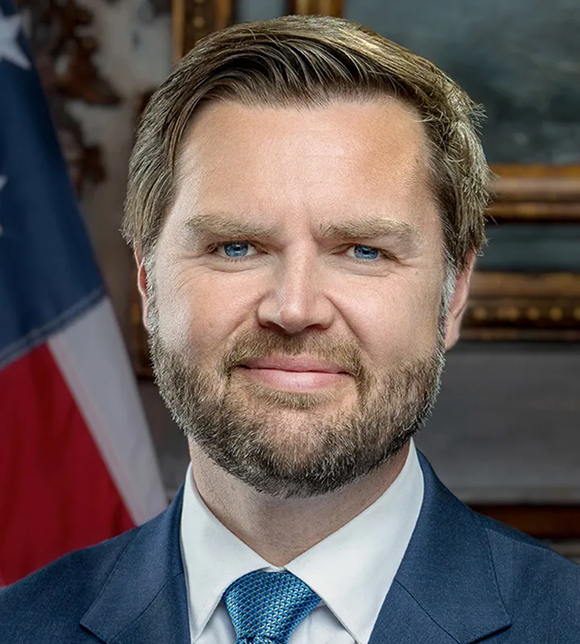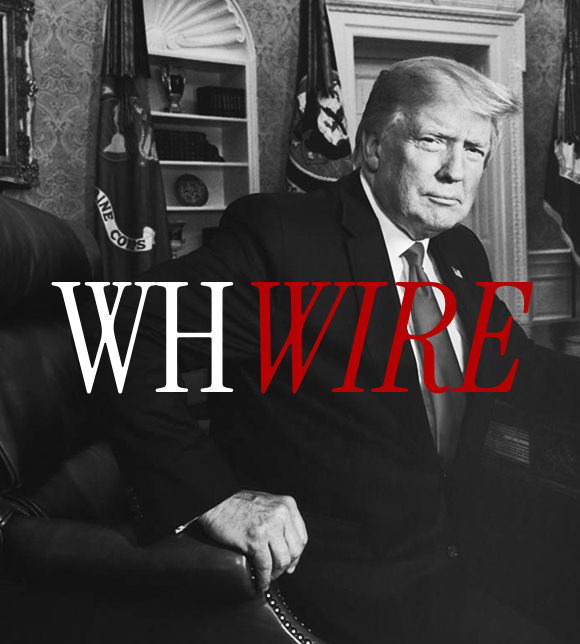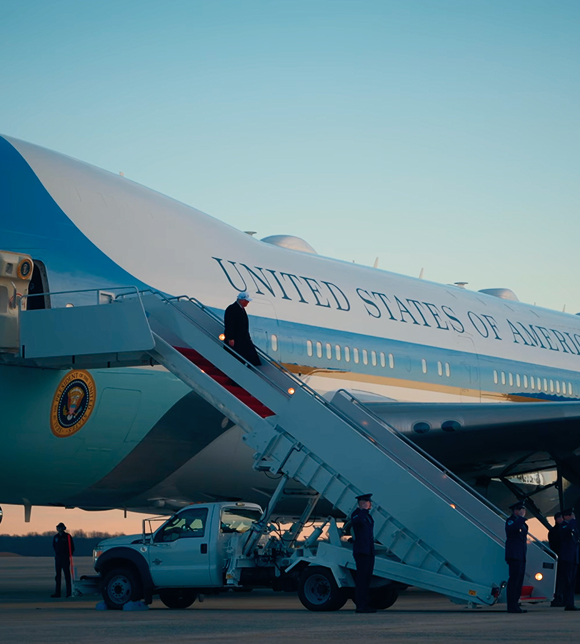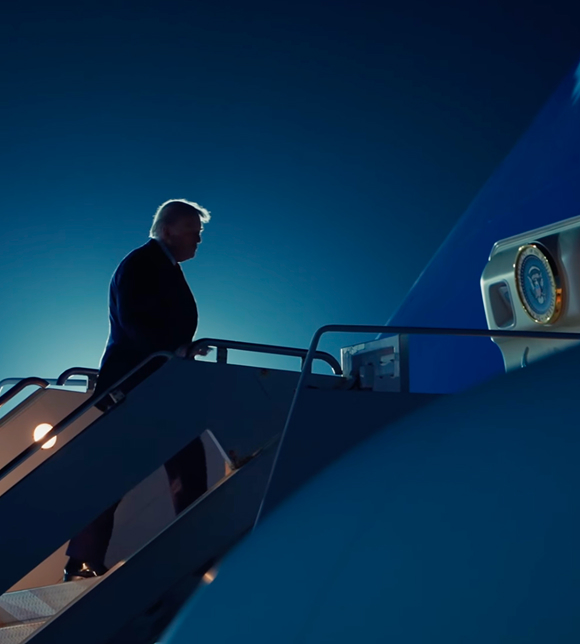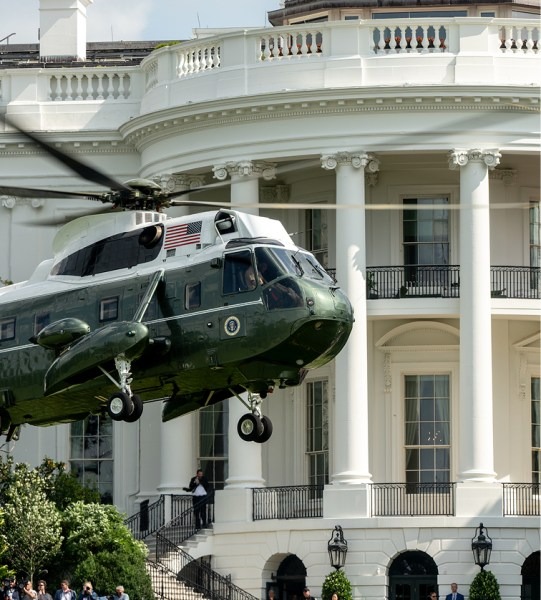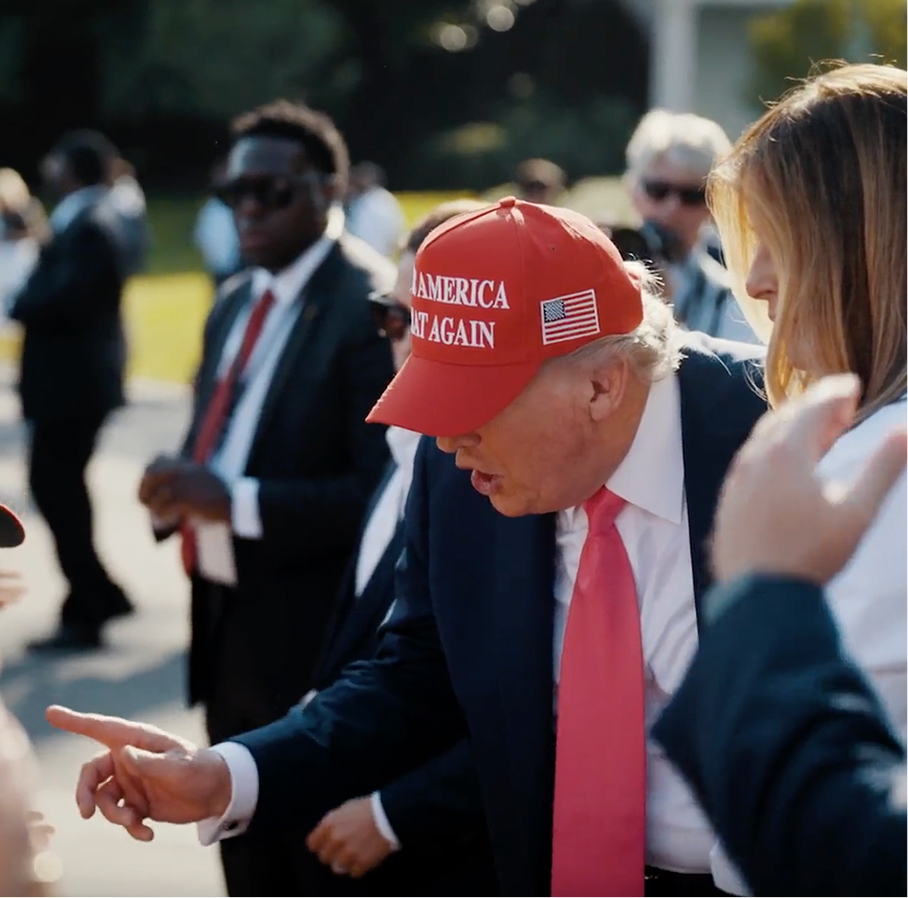First Lady Melania Trump Addresses U.N. Security Council, Championing Peace Through Education
First Lady Melania Trump opened today’s United Nations (U.N.) Security Council meeting with a decisive message to its members: “Peace does not need to be fragile.”
Mrs. Trump’s message of tolerance is rooted in the concept of “democratizing knowledge” for everyone, during this new “age of imagination” when artificial intelligence provides the global community with access to learn about each other’s cultural norms, including but not limited to customs, race, and religious beliefs.
In a historic move, First Lady Melania Trump addressed the U.N. Security Council as the United States assumed its Presidency. The Security Council’s Presidency rotates among members each month, beginning in March 2026 for the United States. The Security Council serves as the U.N.’s principal organ responsible for safeguarding international peace and security.
The American First Lady challenged the U.N. Security Council members to “pledge to safeguard learning … to build a future generation of leaders who embrace peace through education.”
The First Lady stressed the imperative of respecting knowledge to foster durable peace. “Enduring peace will be achieved when knowledge and understanding are fully valued within all societies,” explained Mrs. Trump. The American First Lady implored, “now is the time for our generation to elevate our children above ideology through access to wisdom.”
This marked the first time a sitting First Lady presided over the Security Council as its members contemplated technology, education, peace, and security.
Below are the full remarks by First Lady Melania Trump, as prepared for delivery:
Peace Through Education
First, my heartfelt condolences to the families who have lost their heroes, who sacrificed their lives for freedom. Their bravery and dedication will always be remembered.
I extend my earnest wishes for a swift and smooth recovery to all those who have been injured. You are in my thoughts and prayers during this challenging time.
The U.S. stands with all of the children throughout the world. I hope soon—peace will be yours.
Ambassador Waltz, I am grateful for the distinguished honor to preside over the United Nations Security Council as the United States assumes its presidency.
Under-Secretary-General DiCarlo, thank you for welcoming me here today. Your generosity reflects the dignity with which you hold your post.
Thank you for your warm welcome United Kingdom, France, Russian Federation, China, Greece, the Democratic Republic of Congo, Denmark, Panama, Liberia, Somalia, Colombia, Pakistan, Bahrain, and Latvia.
Collectively, your mission to maintain security while upholding the responsibility of preventing conflict during times of both war and peace is significant, must be applied evenly, and should never be carried out lightly.
Peace … does not need to be fragile.
Enduring peace will be achieved when knowledge and understanding are fully valued within all societies. The value placed on education by a nation’s leaders shapes the core of their country’s belief system.
A nation that makes learning sacred protects its books, its language, its science, and its mathematics—it protects its future. This leads to something powerful—to greater understanding, moral reasoning—and tolerance of others. Peace.
Children raised in a culture rooted in intelligence develop confidence, innovate, build, compete, and maintain a deep value system. Their knowledge fosters empathy for others, transcending geography, religion, race, gender, and even local norms. They become caring people.
But children raised in a culture rooted in ignorance are surrounded by disorder, and sometimes even conflict. These societies are filled with rigid thinkers who embrace prejudice and shun human dignity.
When a nation restricts thought, it restricts its own future.
Education is widely recognized as a fundamental human right. And yet today, so many children and young adults are banned from attending secondary schools and universities.
The cost is not abstract.
Imagine the loss of potential to our collective humanity—new medical breakthroughs, advancements in food security, groundbreaking technologies—all gone. A society that excludes vast segments of its population can realize only a fraction of its potential.
Societies ruled by knowledge and wisdom are, therefore, more peaceful.
We must cultivate a just, moral imagination for the next generation, for our children—building an infrastructure of understanding.
Knowledge is power—it shapes titans of industry and inspires courageous social pioneers. We must capture this positive energy and ignite it across continents to transform our world—throughout our digitally connected human race.
Intellect blossoms humanity’s fundamental needs: shelter, food security, clean water, and health care. And predictably, almost all communities will have access to knowledge within our lifetimes.
The global community must facilitate complete access to technology so that every individual can reach their full potential though education. We must strive to achieve connectivity in the most remote locations and the furthest distances from our cities.
This objective is entirely feasible and is already on the way. Today, roughly 6 billion individuals, about 70 percent of people on planet Earth, have a mobile device and use the internet. If our nations band together, we can close the technological divide, empowering all to reach their full potential.
From a solitary farmer on a remote Greek island to a quiet genius in Somalia or a dreamer in uptown Manhattan, anyone can read the vast treasury of human knowledge, created over centuries, which is now codified and accessible through artificial intelligence.
Is a single digital nation-state inevitable? Perhaps this idea isn’t so farfetched since digital currency and payment systems via blockchain, plus AI’s massive factual database is already revolutionizing media and financial markets. We are in the age of imagination—a period when technology can be free and unrestricted by land borders. Indeed, now is the time for our generation to elevate our children above ideology through access to wisdom.
AI is democratizing knowledge, which was once confined to university libraries. AI is creating a new reality for our children by disrupting the traditional academic path to information. Today, almost anyone, anywhere can access a vast universe of data in the palm of their hand. Let’s connect everyone to knowledge through AI, including those in the most remote geographic regions of our world.
Look at what this truly means: in a matter of seconds, without travel, one can quickly learn about another’s beliefs, religions, customs, and histories.
We are open, and this is empowering.
AI can provide us with an understanding of each other’s needs and the needs for our children. AI is redefining who gets to participate in the global economy of ideas. I believe our shared intellectual future will prove to be a more secure, harmonious, advanced civilization.
The path to peace depends on us taking responsibility to empower our children through education and technology.
Conflict arises from ignorance, but knowledge creates understanding, replacing fear with peace and unity. Security Council members, I encourage you to pledge to safeguard learning in our communities and promote access to heightened education for all. I implore you to build a future generation of leaders who embrace peace through education.
Thank you.
